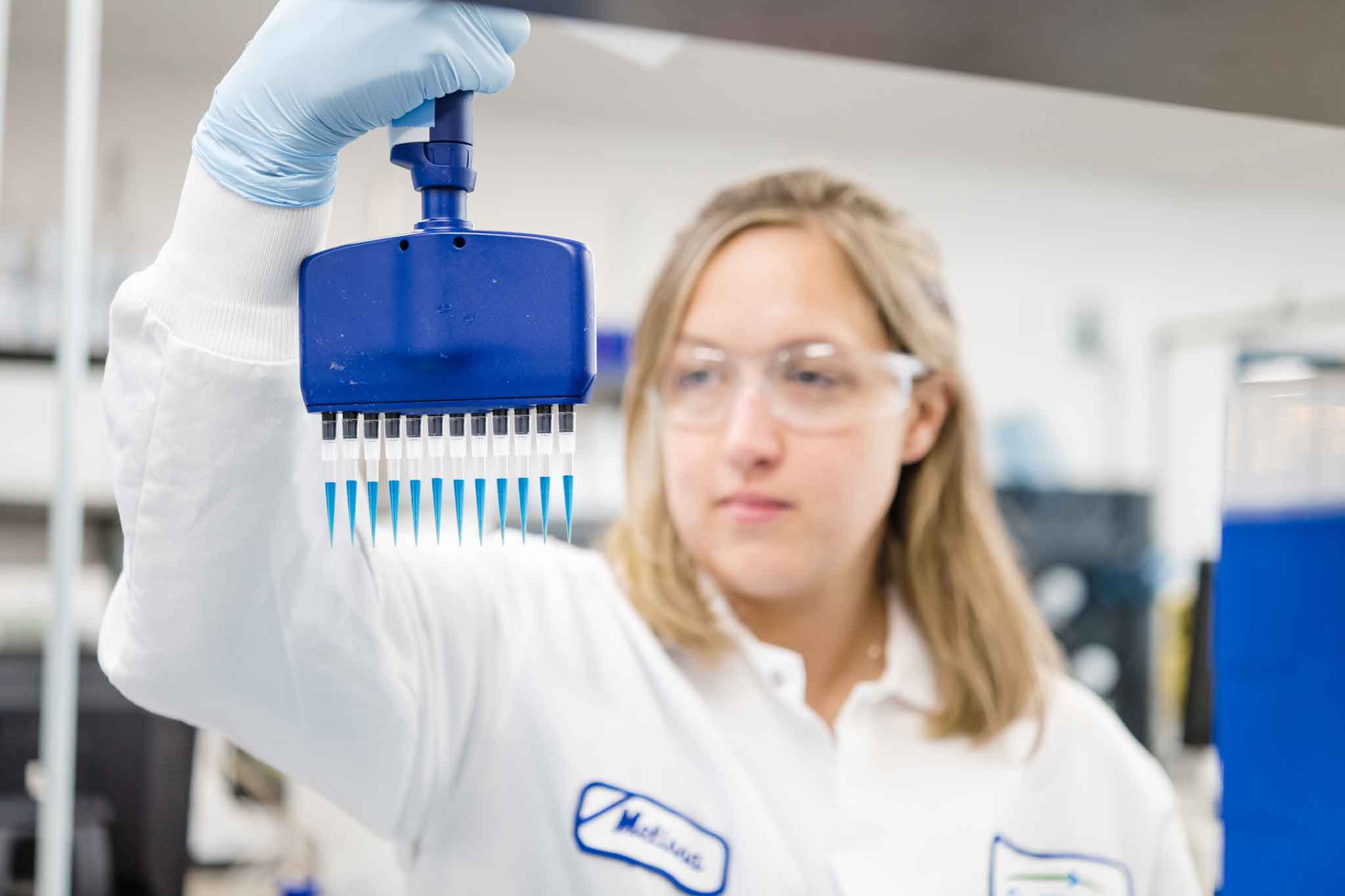At QPS, translational medicine brings together leading-edge technologies and pharmaceutical research and development (R&D) experience to create a business service unit that works efficiently to advance your drug discovery and development program.
Quantitation projects in translational medicine include qualification and validation of commercially available kits and methods; method transfer of assays originated from the Sponsor’s lab; independent method development; or a collaborative effort between the QPS team and your lab for custom assays. In addition to immunoassays for PK, biomarkers, and immunogenicity assessment, QPS can develop cell-based assays for neutralizing antibody (NAb) activity studies and biomarker evaluation in support of your drug development programs.
Fit-For Purpose Validation & Qualification
We work diligently with clients to determine best practices for conducting biomarker or other pharmacodynamic (PD) studies to support both preclinical studies and clinical trials. As PD assays are often for explorative use only, we have adopted a “fit-for purpose” plan to qualify and validate assays. QPS can plan a “fit-for-purpose” method qualification or validation that identifies the key tests needed to ensure the suitability of an assay method on an individual basis.
A full method validation is typically described in a sponsor-approved validation protocol and includes at least six assay runs to determine both inter- and intra-batch precision and accuracy, dilution linearity (hook effect tests), matrix selectivity, matrix effect (n ≥ 6) and necessary stability tests including benchtop (ambient temperature), freeze-thaw and long-term storage.

In a “fit-for-purpose” method validation, the context of use, the individual biomarker characteristics, and the study specifics are used to determine which of these tests are appropriate. Some tests may be eliminated on an individual basis if they are not applicable to the particular biomarker, not useful for a specific type of assay (e.g. activity assay) or if they are not relevant to the clinical or preclinical study the method is supporting. Additional tests may be added given the same considerations.
We can also provide a shorter method qualification, usually performed with a vendor-qualified assay kit. A qualification typically includes 3 or more precision and accuracy runs and matrix testing. In this case, assay specifications including more extensive validation tests are provided by the assay vendor. As a “fit-for-purpose” qualification, additional tests may be added based on the nature of the assay and specific study considerations. In some cases, an inter-laboratory cross validation may be performed for data comparison, using 20-30 samples provided by the sponsor.





